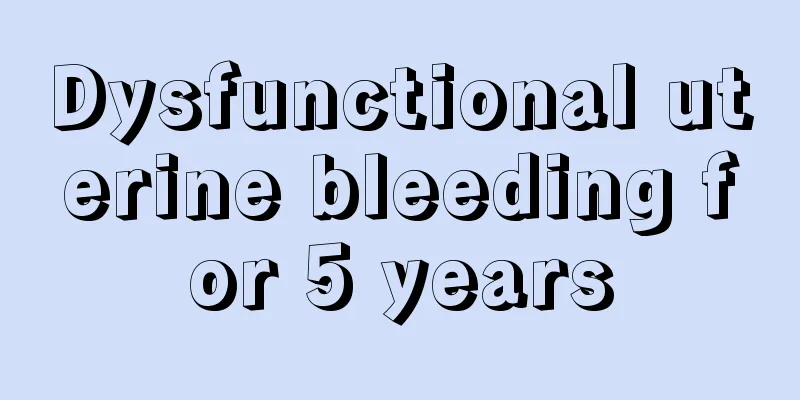What are the treatments for polycystic ovary syndrome?

|
Polycystic ovary is a female disease that causes abnormal ovulation and infertility. In addition to infertility, symptoms such as obesity and hirsutism may also occur. Polycystic ovary can be treated, but the treatment plan is special and should be targeted according to your polycystic ovary symptoms. You should keep relaxed at ordinary times. Being too anxious is not good for the treatment of polycystic ovary. What should I do if I have polycystic ovary? 1 Obesity and insulin resistance Increase exercise to lose weight, correct endocrine and metabolic disorders aggravated by obesity, reduce insulin resistance and hyperinsulinemia, reduce IGF-1, increase IGfBP-1, and increase SHBG to reduce free androgen levels. Losing weight can restore ovulation in some obese women with PCOS and prevent the occurrence of type 2 diabetes and cardiovascular disease. Metformin treatment can be used for patients with or without diabetes. It can effectively reduce body weight, improve insulin sensitivity, lower insulin levels, reduce hair loss, and even restore menstruation (25%) and ovulation. Since obesity and insulin resistance are the main causes of PCOS, any drug that can reduce weight and increase insulin sensitivity can treat this syndrome. 2 Drug-induced ovulation Clomiphene is the first choice drug for PCOS, with an ovulation rate of 60% to 80% and a pregnancy rate of 30% to 50%. Clomiphene competes with endogenous estrogen receptors at the hypothalamus-pituitary level, inhibits estrogen negative feedback, increases the pulse frequency of GnRH secretion, and thus adjusts the secretion ratio of LH and FSH. Clomiphene also directly stimulates the ovaries to synthesize and secrete estrogen. After taking this drug, the ovaries may enlarge due to overstimulation (13.6%), vasodilation may cause hot flashes (10.4%), abdominal discomfort (5.5%), blurred vision (1.5%), or side effects such as rash and mild hair loss may occur. 3 Artificial menstrual cycle For patients without hirsutism and no fertility requirements, progesterone can be given for artificial cycle treatment to avoid excessive proliferation and cancer of the endometrium. Polycystic ovary disease is not as scary as imagined. Some women do not understand it well, so they think they will never get pregnant after suffering from polycystic ovary disease. In fact, as long as you actively cooperate with the treatment, you can get pregnant after recovery. Now many patients with polycystic ovary have become mothers after treatment. Don't be scared by polycystic ovary. |
<<: Can mothers eat frozen persimmons during breastfeeding?
>>: How to use emergency contraception?
Recommend
Pregnant women sleep late and don't eat breakfast
When a woman becomes pregnant, her body will unde...
What's wrong with the uterus?
The uterus is a very important organ for women. T...
What are the reasons for the curling of cassia leaves? What should I do if the cassia leaves curl?
Gardenia is very common in life. Many flower love...
Is bread bad when it turns sour? Why is sawdust added to black bread?
Bread is also called artificial fruit, and there ...
Doctors urgently remind you that crayfish cannot be eaten like this!
Expert of this article: Zhang Zheng, PhD in Nutri...
Symptoms of progesterone deficiency in women
For female friends, pregnancy and childbirth is a...
How many times to have sex on the ovulation day to get pregnant
The chance of pregnancy for a young couple one mo...
What to drink when menstruation is light?
For female friends, the most common problem in li...
What is the white liquid?
The white liquid secreted by women is commonly kn...
What to eat during menstrual cycle
Many women do not eat during their menstrual peri...
What Chinese medicine foot bath is the most beneficial to health? What are the contraindications of Chinese medicine foot bath?
Soaking your feet in hot water can improve local ...
Will irregular menstruation affect pregnancy?
As people's pursuit of life improves, the pre...
Will medical abortion affect fertility?
If female friends have medical abortion in normal...
A complete picture of a woman's right foot with a mole
Don’t think that a mole is so small, but it has a...
Is fungal vaginitis serious?
As people's living standards continue to impr...









